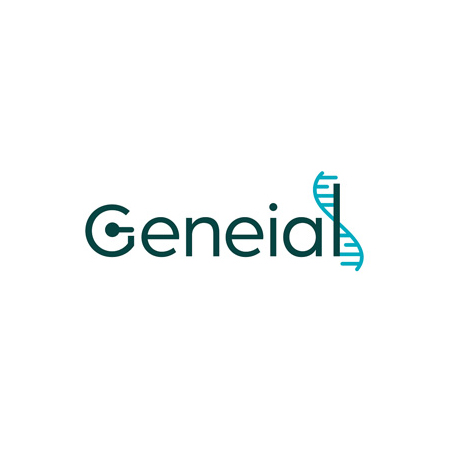
Geneial Receives $2.3M NIH Grant
October 19, 2022
HOUSTON, Sept. 22, 2022 /PRNewswire/ — Healthtech company Geneial announces a multimillion dollar, non-dilutive award from the National Human Genome Research Institute to fund the development of their secure, decentralized platform.
Geneial’s platform will connect researchers of rare genetic diseases with relevant data while preserving patient privacy. Geneial’s platform aims to help researchers leverage large datasets of rare disease populations, incentivizing custodians of biomedical data to grant researchers access to highly targeted biomedical data.
This unique new award is part of a highly selective “Small Business Transition Grant for Early Career Scientists” program with fewer than ten companies funded to date. In previous work, Geneial demonstrated a proof-of-concept for HIPAA-compliant privacy-preserving registry search using the Xia-Gibbs syndrome (XGS) registry at the Baylor College of Medicine Human Genome Sequencing Center (HGSC) – led by Richard A. Gibbs, AC Ph.D., a global leader in genetics.
“We are honored to have the backing of the NIH and HGSC as we realize our mission of advancing genetic and personalized medicine,” shared Adam Hansen, Ph.D., CEO of Geneial and Principal Investigator of this project.
He continued, “Over 400 million individuals worldwide suffer from a rare disease, yet only 5% of these have an available treatment – this is largely because data is highly fragmented across silos, which impedes the progress of research and therapeutic development. Accessing data across silos is necessary, but data privacy and ownership concerns prevent widespread data exchange. To solve this, we are building a decentralized, HIPAA-compliant platform for granular data exchange that safeguards individual privacy and protects data ownership.”
Dr. Gibbs shared of the collaboration, “At the HGSC we have been impressed with Geneial’s nuanced understanding of the problems facing data interoperability and exchange and with how their products and roadmap are calibrated to address key issues. We are eager to continue our partnership through the course of this grant and beyond as their offerings expand.”
Research reported in this publication is supported by the National Human Genome Research Institute of the National Institutes of Health under Award Number R42HG012288. The content is solely the responsibility of the authors and does not necessarily represent the official views of the National Institutes of Health.